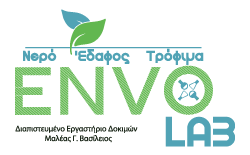The Integrated Management System is a system of organizing a farm which includes, inter alia, Good Agricultural Practice, Workers’ Safety and Health, Product Safety, Traceability and Environmental Action. It aims to create the basis for efficient and profitable production in an economically viable and environmentally responsible agricultural enterprise, incorporating in modern farming practices, beneficial natural processes resulting in reduced chemical inputs. Product labeling makes it recognizable and guarantees quality to consumers.
Integrated management requires compliance with the Code of Good Agricultural Practice, permits the use of fertilizers and pesticides, but only after analysis and a valid diagnosis of the needs of each crop and according to the particular soil conditions of each area and emphasizes the production of high quality products. The advantages of Integrated Management are:
- Quality labeled products.
- Increase productivity, profitability and profitability.
- Reduce production costs.
- Health protection.
- Penetration into new markets that require certified products.
- Expanding market share.
- Increased confidence and full assurance of consumer demands.
- Enhanced environmental management.
- Adaptation to modern and high quality European agricultural practice.
Integrated Crop Management Systems implementation services are based on the maintenance of a detailed log of all production processes in accordance with the national standard AGRO 2.1 – AGRO 2.2 and the Globalgap, QS, Tesco Nurture protocols.
Integrated Services include:
- Soil analysis,
- Visits – Inspections,
- Management Plans,
- Procedures, Guidelines for Good Practice,
- Improvement Guidelines, Crisis Guidelines,
- Information Concentrations,
- Training,
- Overview, Audit – Internal Audit,
- Certification Preparation,
- Certification, Continuous system maintenance.
However, the key requirement for high quality agricultural production and environmental protection is the proper use of inputs, especially fertilizers and pesticides. This requires a series of laboratory analyzes, such as soil and leaf analyzes to help the agronomist diagnose the exact amounts of fertilizer that the crop needs without causing any environmental or financial burden on the producer.





